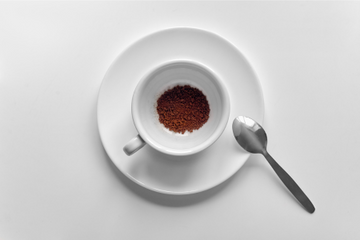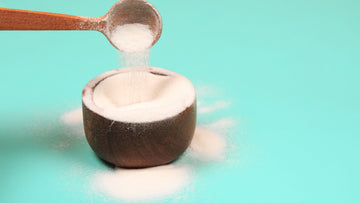
For many people seeking to reduce their caffeine intake or break free from caffeine addiction, decaffeinated coffee, or "decaf" for short, might seem like a logical choice. After all, it's often touted as a caffeine-free alternative. However, the truth about decaf coffee is more complex than it appears.
We'll uncover why decaf might not be the solution you're seeking if you're trying to eliminate caffeine from your life.
The Illusion of Caffeine Freedom
Decaf coffee is often marketed as a caffeine-free beverage. While it's true that decaf contains significantly less caffeine than regular coffee, it is not entirely devoid of this stimulant. The term "decaf" stands for "decaffeinated," not "caffeine-free." This means that, by definition, decaf still contains caffeine, albeit in reduced amounts.
Unregulated Caffeine Content
One of the biggest issues with decaf coffee is the lack of standardised regulations regarding its caffeine content. The decaffeination process can vary among producers and brands, leading to inconsistencies in caffeine levels. While decaf coffee typically contains about 2 to 5 milligrams of caffeine per 8-ounce cup (compared to the 95 milligrams in a regular cup of coffee), this range is not regulated. Consequently, you can't be entirely sure how much caffeine you're consuming when you opt for decaf.
Cumulative Caffeine
Additionally, if you're drinking several cups of decaf a day, the caffeine content can add up. What might seem like a negligible amount in a single cup can become significant with multiple servings. This cumulative effect is essential to consider if you're striving for complete caffeine elimination.
The Decaf Dilemma
Chemically Processed Decaffeination
The process of decaffeinating coffee beans involves various methods, some of which are chemically intensive. The most common methods include solvent-based processes and non-solvent methods such as the Swiss Water Process.
-
Solvent-Based Methods: Traditionally, coffee beans were decaffeinated using chemical solvents like methylene chloride or ethyl acetate. While these chemicals effectively remove caffeine, they raise concerns about potential residues and health implications.
-
Swiss Water Process: This method is considered more natural, using water and activated charcoal to remove caffeine. It is generally perceived as a safer option but can be more expensive.
Impact on Flavor and Aroma
Decaffeination processes can alter the flavour and aroma of coffee. Many coffee enthusiasts argue that decaf lacks the depth and richness of its caffeinated counterpart. The chemical processes used in some decaffeination methods can strip the beans of their natural oils and aromatic compounds, resulting in a less satisfying coffee experience.
Negative Health Effects
While decaf coffee is often considered a healthier choice due to its reduced caffeine content, it's not entirely devoid of potential negative effects. Some studies have suggested that decaf coffee can still impact cholesterol levels and affect certain health markers. Although the effects are generally milder compared to regular coffee, they are worth considering, particularly if you're sensitive to dietary changes.
Understanding Caffeine Addiction
Caffeine addiction is a prevalent issue, and many individuals turn to decaf as a way to break free from it. The addictive nature of caffeine stems from its stimulating effects on the central nervous system. Over time, the body builds up a tolerance to caffeine, leading to a need for higher doses to achieve the same effects.
How Long Caffeine Lingers
Caffeine's longevity in the body can make quitting or reducing caffeine intake challenging. On average, caffeine has a half-life of about 3 to 5 hours, but this duration varies from person to person. Some individuals can experience caffeine's effects for up to 10 hours. The lingering effects can disrupt sleep patterns, affect the nervous system, and lead to a host of other issues.
Conclusion: The Complex Reality of Decaf
In conclusion, while decaf coffee offers a lower caffeine alternative to regular coffee, it's essential to approach it with a nuanced perspective. Decaf is not caffeine-free; it contains varying amounts of caffeine that can add up if consumed in multiple servings. Additionally, the lack of strict regulations regarding decaffeination processes can lead to inconsistent caffeine content, making it difficult to control caffeine intake effectively.
If you're striving to reduce caffeine intake significantly or eliminate it entirely, it's advisable to explore caffeine-free alternatives such as herbal teas or caffeine-free coffee substitutes like Not Coffee. These options offer a more reliable way to achieve your caffeine reduction goals without the uncertainties and complexities associated with decaf coffee.





